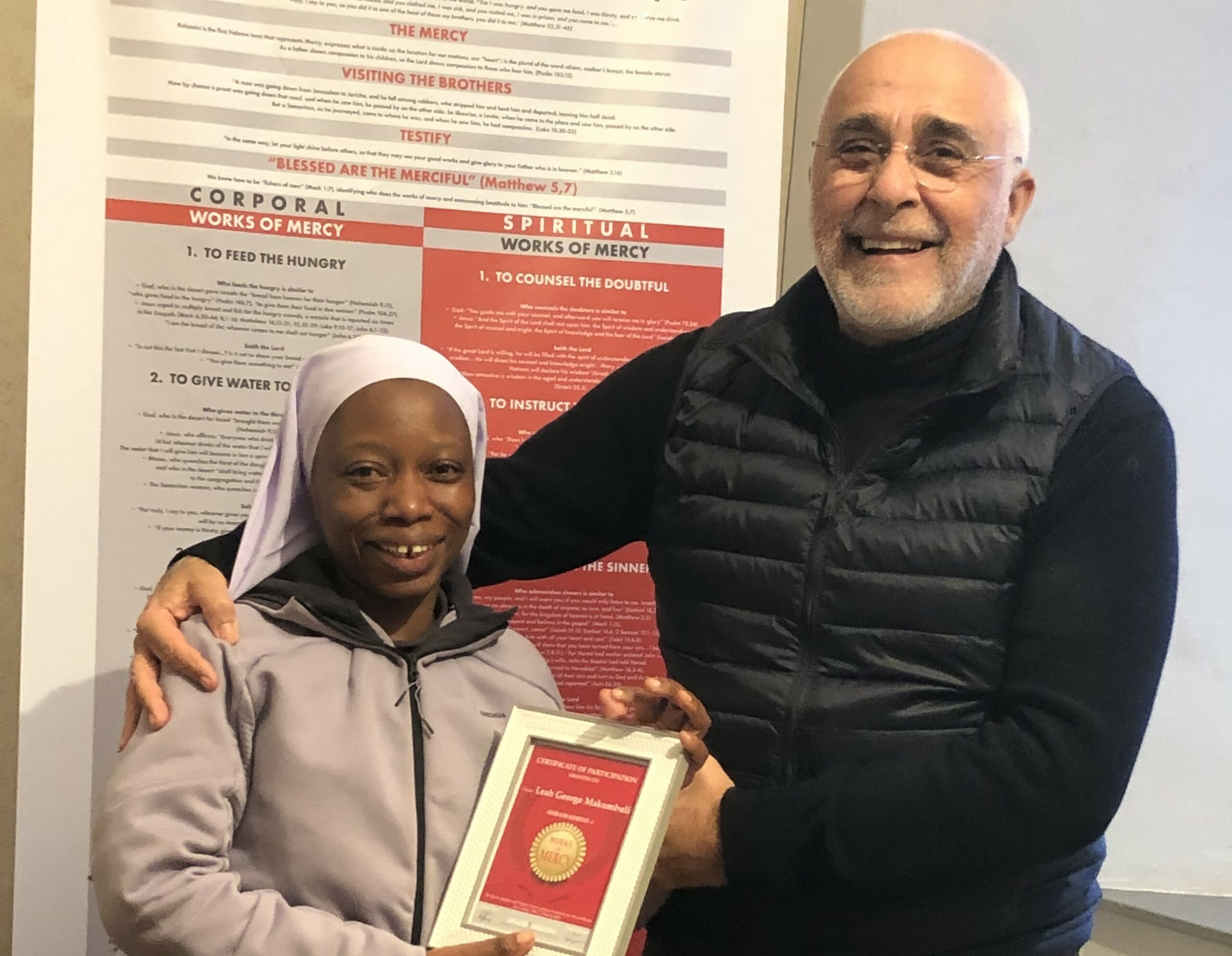
Sister Leah: A Bridge Between Italy and Tanzania Thanks to spazio + spadoni’s HIC SUM Project
Sister Leah tells us about Tanzania! 125 tribes are there. Kind of like our Italian hinterland, so colorful
I am Sister Leah George Makumbuli. I was born in 1984 in Newala, a district in the Mtwara region. Both my parents were farmers. Of four children, I am the last of them.
How did my vocation begin?
One day, Sister Sigilinge Achiura of the African Benedictine Sisters of Our Lady came to our boarding school. She struck me immediately. In particular, I was impressed by their charism, that of PRAYER and WORK. I felt on that occasion that my life should be so shaped.
So in 2006 I began my two-year novitiate. We were 12 novices, like the apostles. In 2008 I made my first vows. I made my final profession in 2014. In the meantime I was sent to complete my studies so that I could be placed in teaching. Later I took a course in administration.
Our Motherhouse is located in Ndanda, Tanzania. My congregation has 234 consecrated members and works in two countries, Tanzania and Mozambique.
Have you ever been to Tanzania?
The language you will need to learn is Kiswahili. The customary clothing of the people responds to local customs that takes into account environmental needs. Choosing a different material (Kitenge, Kanga or Batiki) is not pure fashion or style.
Nothing is by chance. We are 125 tribes, each with different laws, customs and ethnic philosophies. European civilization has somewhat affected by transmuting what is authenticity into folklore, musicality, tribal dances. So the Sindimba of the Makonde tribe, like the Sangula of the Pogoro tribe, like the Lizombe of the Ngoni tribe and the Madumange of the Manda people represent an alternative curiosity.

Tribes
Where I am with my sisters are the Makonde, we are toward the south of Tanzania in the diocese of Mtwara. Do you want to know what our traditional dance is called? Sindimba. But the domination here is Arab. So, most of the population is Muslim and there is a numerical inferiority of Christians.
We have many works to do, regardless of religious and cultural background, especially for food supplies, hunger. We never let a child go without something to eat. We are a reference point there at least for this corporal work of mercy.
Knowledge of the works of mercy is a key component for our area.

The meeting with spazio + spadoni
And so one day, reflecting with our superior general, Sister Auxilia Hokororo, we decided to join the HIC SUM project and later OPERA M. They were right for us.
On the one hand, we started a small social enterprise by raising poultry in the modern way so that we could also produce eggs. That sounds like nothing. But the need for protein to grow can save a life day by day. Truly, so little is enough.
On the other hand, we started the dissemination of works of mercy to make them known to the people. Everyone can do them.
Let us help each other in this holy pavement that God has prepared for each of us.
